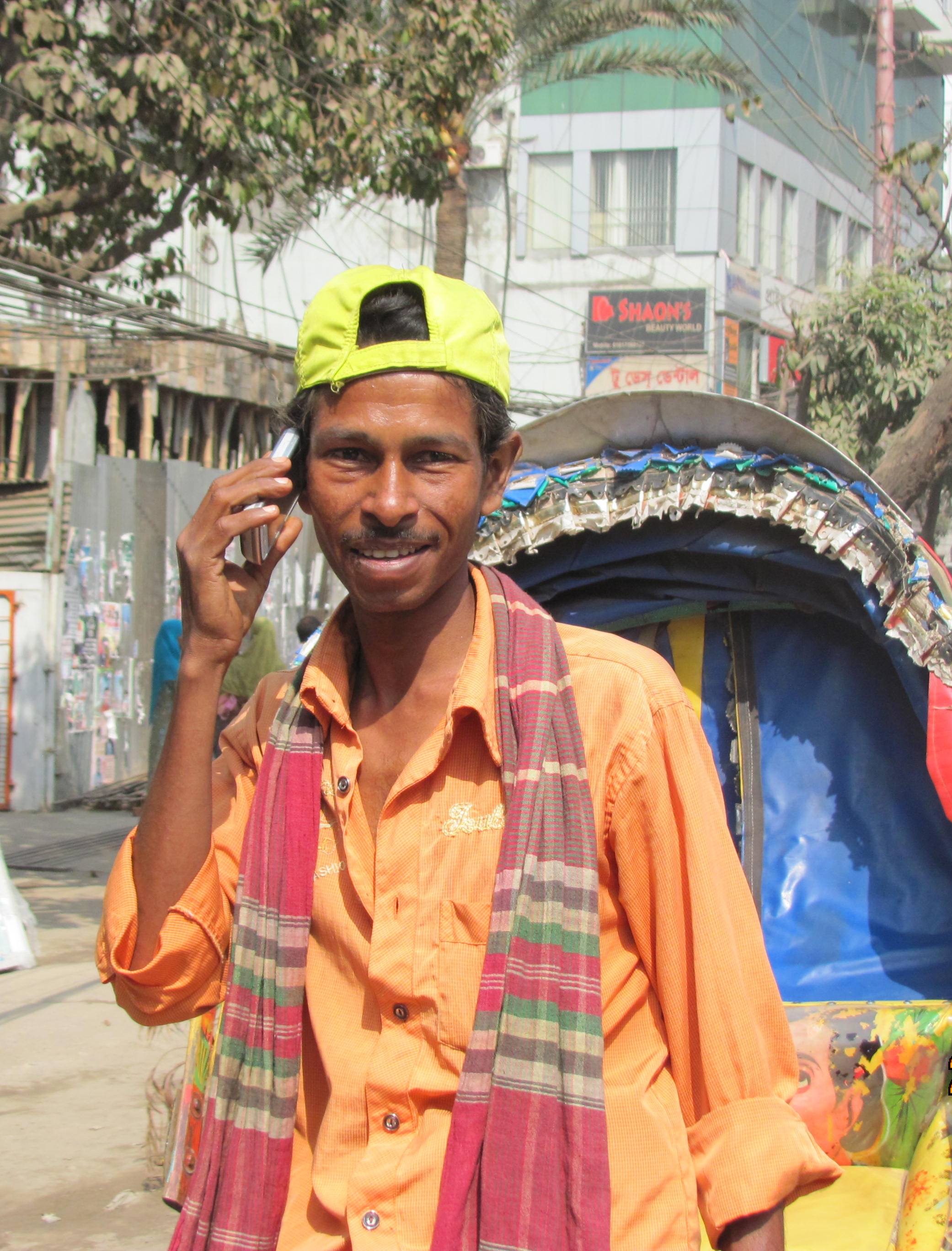“It is difficult to manage doctors for [a national population of] 140 million people. We are using mobile phone service to bridge this treatment gap, “Abul Kalam Azad, a senior official at the Directorate General of Health Services, told IRIN.
Close to 60 percent of the population - some 85 million people - use mobile phones in Bangladesh, according to a December 2011 report from the country’s telecommunications regulatory commission.
Cut off from formal medical care, some patients turn to untrained or “fake” doctors, leading to fatal remedies, said Azad, who wants to counter this trend with sound health advice.
Since 2009, the government has provided cell phones to 482 sub-district and district government hospitals, which are used as round-the-clock hotlines staffed by health workers.
Nationwide there is one doctor for every 3,200 residents and one hospital bed for every 1,738 people, according to government data published in 2011.
While this proportion of doctors to residents exceeds the World Health Organization (WHO) recommended minimum of one doctor per 10,000 residents to ensure basic health services, the picture in rural areas is markedly different.
“There are many hard-to-reach areas where it is difficult for the people to quickly rush to the hospitals. These people are getting health advice by the mobile phone health service,” said Azad.
The country is in the bottom 20 countries ranked by NGO Save the Children for health workers’ ability to reach patients in need.
Diarrhoea advice by phone
Shakhawat Hossain, 30, an agricultural labourer from Kaliakair, a sub-district 40km north of the capital Dhaka, said health advice via phone can help when there are no other alternatives.
When Shakhawat’s three-year-old daughter recently had a 3am bout of diarrhoea, he was anxious, knowing how difficult it was to get to the closest hospital.
“My wife told me that she had heard that anyone can get help from the sub-district doctors by mobile phone. I phoned the doctor and he told me everything I should do,” he said.
The health worker on the other end of the line instructed him to feed her liquids and a homemade saline solution.
Within hours, his daughter’s condition improved.
Every year, a rural child has an average of 4.6 episodes of diarrhoea, from which about 230,000 children die annually, according to a 2003 government study.
Even though there is an effective treatment solution of salt and sugar, known as oral rehydration therapy, less than 30 percent of the patients who need it use it, and only 17 percent do so properly, according to the Dhaka-based International Centre for Diarrhoeal Disease Research, Bangladesh.
“People might have very insignificant problems but when they hear from a doctor, they are relieved.”
Babul Mia, 25, a rickshaw puller in Dhaka, told IRIN he had not heard about the service.
Azad said local leaders and newspapers have publicized the 24-hour hotline contact numbers nationwide and there are plans to launch TV and radio advertisements.
Maternal health
Since 2010 public health workers have sent SMS text message reminders to pregnant women about periodic antenatal and postnatal care, as well as advice on safe delivery.
There are plans to create a phone number offering pre-recorded maternal health messages.
In addition, an SMS-based complaint and suggestion service for all government hospitals was launched in December 2011.
On 20 February, a rural patient sent an SMS about how the eye doctor was often absent from the hospital, while another wrote how the district hospital where he lived was dilapidated.
“We are getting such complaints every day and we are taking action immediately,” Azad said.
mw/pt/cb
This article was produced by IRIN News while it was part of the United Nations Office for the Coordination of Humanitarian Affairs. Please send queries on copyright or liability to the UN. For more information: https://shop.un.org/rights-permissions





